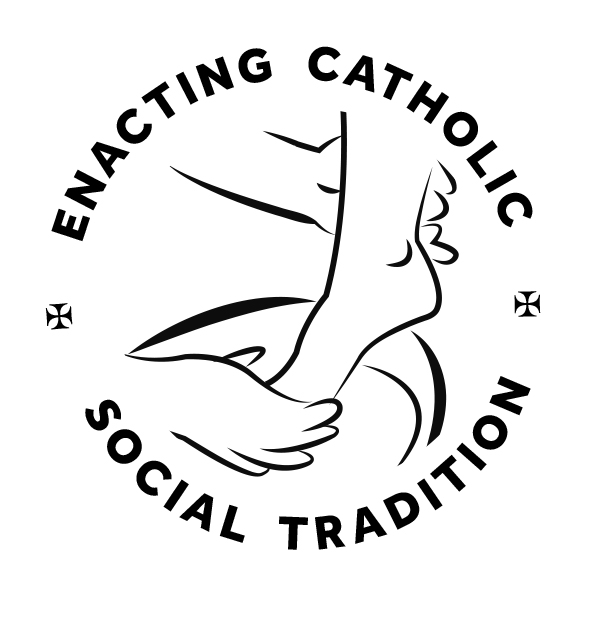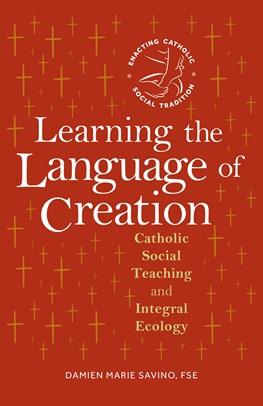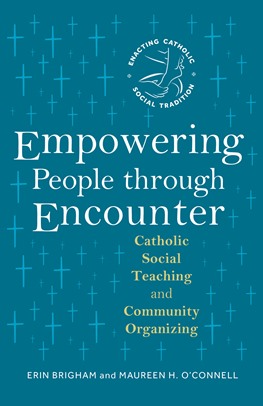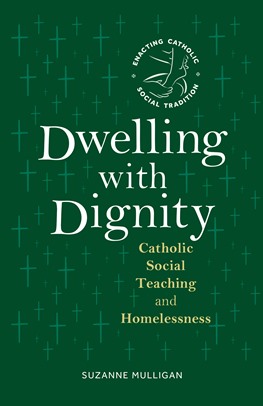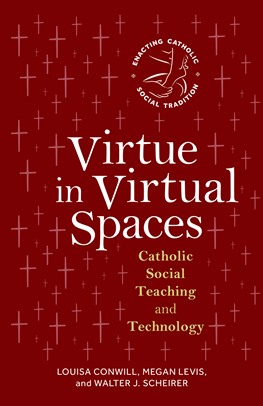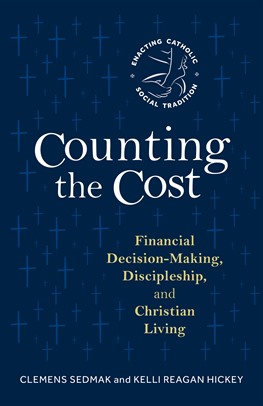book series
Enacting Catholic Social Tradition book series
The institute is committed to developing and disseminating scholarship in Catholic social teaching (CST). The institute’s book series Enacting Catholic Social Tradition, published by Liturgical Press, addresses the systematic application of CST to real-world problems and issues. Written with insights for academics yet accessible to all, the series aims to deepen insights and strengthen the capacity of the church to respond to issues of justice.
Learning the Language of Creation: Catholic Social Teaching and Integral Ecology
Damien Marie Savino, FSE
Coming January 13, 2026
In his landmark encyclical Laudato Si’ on care for creation, Pope Francis connected contemporary ecological concerns and other issues tackled by Catholic social thought by popularizing the idea of integral ecology. In Learning the Language of Creation, Franciscan Sister Damien Marie Savino, professor of civil and environmental engineering and earth sciences, provides a vision for integral ecology grounded in the conviction that the healing of ecosystems and of human communities goes hand in hand and that “the external deserts in the world are growing, because the internal deserts have become so vast” (LS 217).
Empowering People through Encounter: Catholic Social Teaching and Community Organizing
Erin Brigham and Maureen H. O’Connell
Empowering People Through Encounter presents the Catholic social tradition as an embodied, practical, and inspiring way to connect faith and action. It highlights the dispositions, skills, and methods of faith-based community organizing through a combination of interviews with Catholic organizers in the field and case studies of campaigns from a variety of national contexts. Focusing on the relational praxis of organizing provides an opportunity for readers to encounter Catholic social thought as an integrated vision that gets lived on the ground by those closest to the pain of injustices rather than a set of abstract principles invoked by those at a distance.
Dwelling with Dignity: Catholic Social Teaching and Homelessness
Suzanne Mulligan
With its emphasis on the common good, solidarity, and integral human development, the social doctrine of the church offers not only a robust analysis of social injustice but also a call to proximity with the sufferer. Rooted in the gospel, it calls us to dismantle the structures that oppress the poor and exclude many from full participation in society. Dwelling with Dignity invites us to construct economies and societies that place the human person at their center and to work toward human flourishing, personal and communal healing through accompaniment, solidarity, and a commitment to justice in the world.
Virtue in Virtual Spaces: Catholic Social Teaching and Technology
Louisa Conwill, Megan Levis, and Walter Scheirer
2025 Catholic Media Association Second Place Award, Catholic Social Teaching
2025 Catholic Media Association Second Place Award, Pastoral Ministry
At its best, the internet channels the world into a global village of sorts, where digital citizens learn from each other, explore new modes of creation, and help others work through dilemmas in both physical and virtual spaces. Virtue in Virtual Spaces argues that the internet doesn’t have to be the cultural wasteland of click-bait, partisan politics, and vulgar content that we see too often today. The authors draw from writing on virtue ethics and Catholic social teaching to demonstrate this potential goodness of technology. Eight of the main themes of Catholic social teaching are used to build a framework for designing technology to promote human flourishing.
Counting the Cost: Financial Decision-Making, Discipleship, and Christian Living
Clemens Sedmak and Kelli Reagan Hickey
2024 Catholic Media Association Third Place Award, Catholic Social Teaching
2024 Catholic Media Association Honorable Mention, Church Professional
Counting the Cost explains how Catholic social teaching provides a framework for our thinking around finances by answering questions such as these: What does this fundamental decision look like in times of financial scarcity and stewardship responsibilities? How do the attitudes that Jesus invites us into shape the ways we make financial decisions? And how can budgeting be and become a way of discipleship for individuals, parishes, and dioceses? The book includes a range of financial decision-making examples and reconstructs them as decisions about priorities, values, and commitments to respond to the world and its material realities in a gospel-inspired way.
